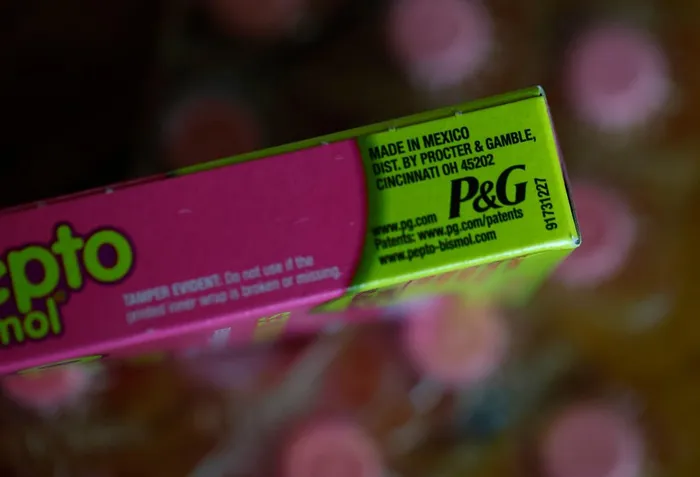P&G slashes tariff impact by 50% as earnings beat estimates

In this photo illustration, the Procter and Gamble logo is seen.
Image: AFP
Procter & Gamble reported better-than-expected sales for its first quarter as consumers brushed off price increases and snapped up its Gillette razors and Secret deodorant. The company also cut its projected impact from tariffs in half.
The Cincinnati, Ohio-based company reported 2% organic revenue growth for the period - above the average analyst estimate. That measure strips out currency volatility and the impact of acquisitions. Revenue and earnings per share also surpassed expectations.
Both volume and sales increased more than expected for the company’s beauty and grooming categories, leading sales growth in the quarter ended September 30. Those divisions offset weaker performance in other areas, such as baby, feminine and family care.
“The consumer environment is not great, but stable,” Andre Schulten, P&G’s chief financial officer said on a media call.
The results reflect consumers’ resilience and suggest that P&G’s strategy of charging a premium for its goods, while marketing them as superior to the competition, is paying off. The company’s advertising message on Tide, for example, is that the detergent will end up saving shoppers’ money because it does a better job of keeping clothes free of stains.
Shares rose as much as 3.4% on Friday, which was also an ex-dividend date for the company. P&G’s stock had fallen 9.2% this year through Thursday’s close, while the S&P 500 Index gained nearly 15% over the same period.
The consumer-goods company, which also owns Bounty paper towels, has announced cuts of about 15% of the corporate workforce over the next two years in a bid to improve efficiency. It’s also bringing on a new chief executive officer while reviewing its portfolio of brands.
Tariff Impact Cut
P&G largely maintained its outlook for the fiscal year that’s slated to run through June, and it’s expecting a more muted hit from tariffs and commodity prices.
The company now sees the expected impact of the levies at $400 million, after tax, down from projecting $800 million in July. The reduction was driven by Canada removing most retaliatory tariffs on US goods. Although, US President Donald Trump said Thursday evening that trade talks with Canada were being terminated. On the media call, Schulten highlighted that an official tariff change hasn’t been announced.
The company increased prices, on average, in all of its business divisions except baby, feminine and family care. Some consumers, under pressure from higher costs across the economy, have started to pull back on spending while seeking out discounts and greater value.
Bloomberg